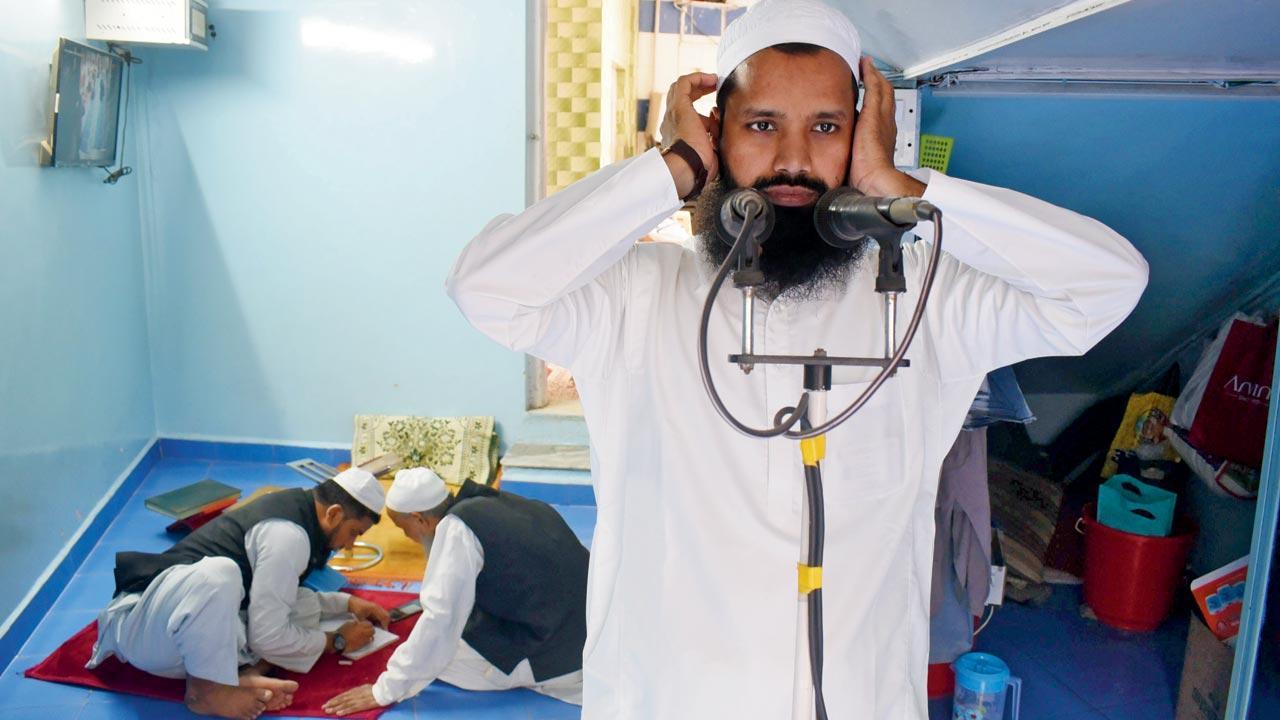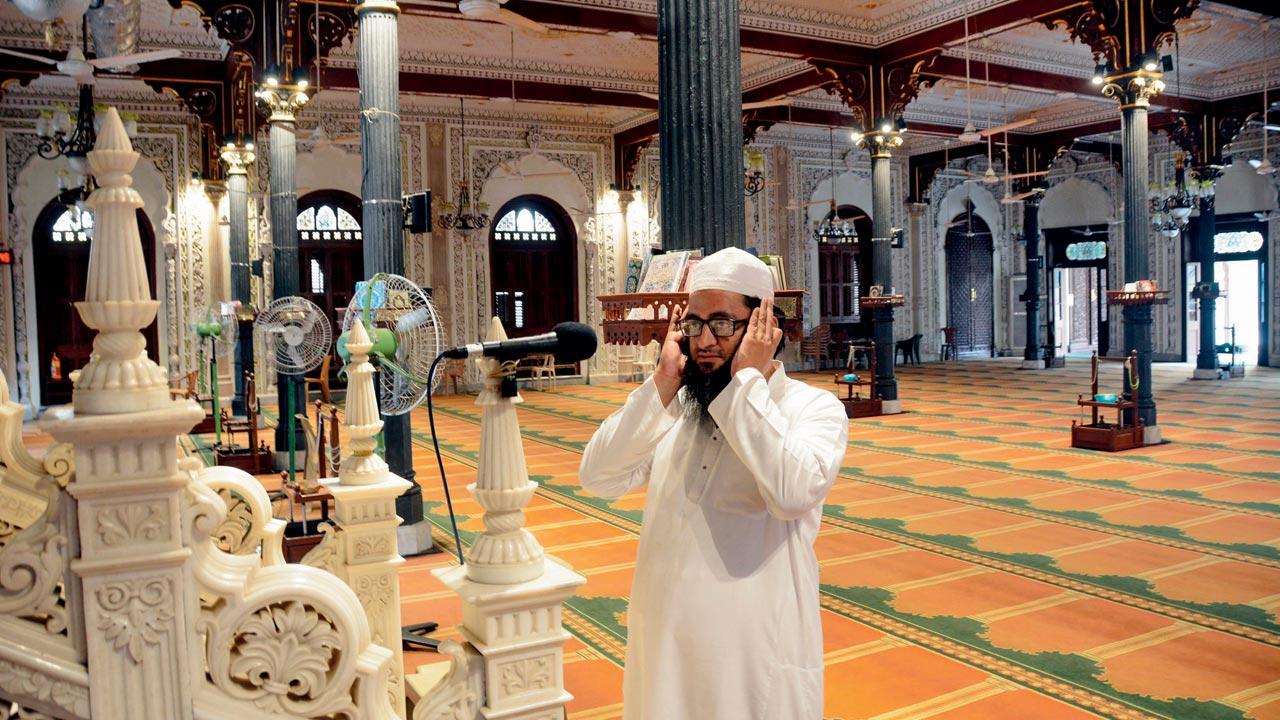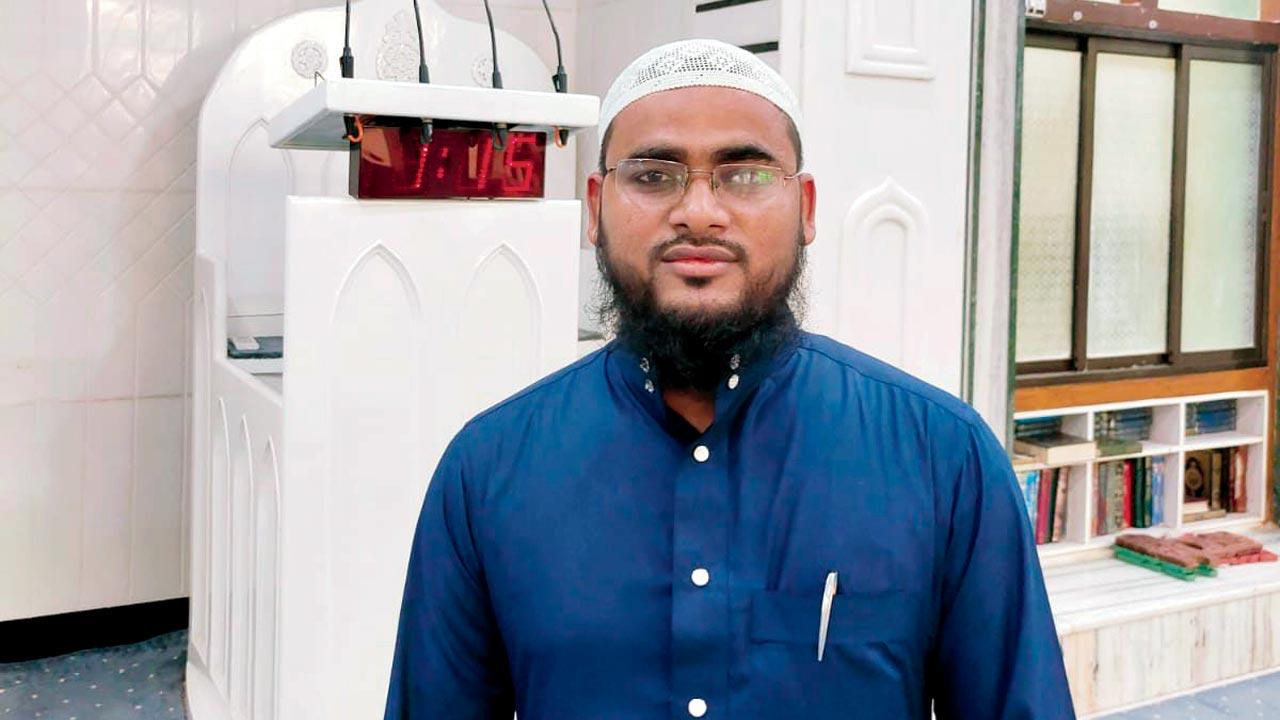Years of training, the touch of God and a humble dream to be the one to call in his name—what it means to be a muezzin

Jamal Akhtar. Pic/Sameer Markande
Being a muezzin is not really a career. His azan from a mosque five times a day, is the prelude to namaz’—a call to kneel and humble oneself. When this writer moved out to Navi Mumbai as an adult, after a childhood in Mumbai Central, we first thought we felt restless due the unfamiliarity of the new place. Then we heard the familiar soothing balm, and realised the azan moored us—the family of a Seventh Adventist parish priest.
ADVERTISEMENT
In this holy month, we speak to muezzins in the city’s three largest masjids, and learn it is both an honour and a penance.
‘We will serve on Qayamat ki raat’
Jamal Akhtar, Chunnabhatti Masjid, Crawford
Had you heard him in 2007, you would lean and strain to catch Jamal Akhtar’s voice as he recited the Quran in his small village [name] in Uttar Pradesh.
His uncle in Kurla’s Kajupada called him to Mumbai to get his throat checked. A teenager at the time, Akhtar’s visit got extended due to medical reasons and eventually, the city became his home.
“I know you think it’s a bit ironic that I came here to fix a faulty throat and stayed back to recite the azan,” chuckles Akhtar, “But that’s how Allah works.”
Akhtar has completed the aalimiyat course taught at the madrassa attached to the masjid, where kids are often sent to learn Arabic and be well versed with the holy book. It also covers the translation of the Quran into Urdu, grammar and language rules that are essential to Arbi, the language of the holy book.
After three to four years of rigorous study, his teachers entrusted him with leading azan and namaz when seniors were absent. In 2011, he was officially made muezzin.
Akhtar believes that his kind will stand out on Judgement Day. “It is said that qayamat ki raat, muezzins will be blessed with the opportunity to keep our head turned towards Allah; and that He will reward us for reminding his followers, five times a day, that they need to stop and be grateful—inside masjids, in homes and on streets.”
‘We don’t do this for fame’
Tausif Iqbal Bangi, Jama Masjid, Mahatma Phule Mandai, Crawford Market
Tausif Iqbal Bangi, whose voice rings from the minarets of the city’s largest masjid, does not want to speak to us. It takes many calls and convincing for us to learn that this is not due to an aversion to media, but because “I am grateful to be able to do this work for Allah,” Bangi explains. “It shouldn’t look like we do this for fame.”
 Tausif Iqbal Bangi gives azan at the Jama Masjid, Crawford Market. Pic/Sayyed Sameer Abedi
Tausif Iqbal Bangi gives azan at the Jama Masjid, Crawford Market. Pic/Sayyed Sameer Abedi
Over 3,000 faithful prostrate themselves in obeisance at Jama Masjid during Ramzan; Bangi a Kokani from Murud Janjira, trained for four years to call out to them. “Because it is such a huge masjid, the trustees put out a call saying that they needed one more muezzin. I got a call and was asked to recite the azaan on the spot. I was selected and I have been here for the last 5 years,” he adds.
Though anyone can recite it, what each Masjid’s trust looks for is a voice blessed with a touch of divinity. “In madrassas, teachers pick out those with sonoric voices.” We ask whether that’s why he was chosen, “My voice? It is a gift only Allah can bestow. Who am I to say I sound melodious?” he retorts, all humility.
The muezzin also has to be a hafiz—the one who knows the Quran by heart; a man of self-restraint in the presence of cigarettes and ice, so his divine gift remains unaffected. They are usually full-time employees of the Masjid’s trust and are funded by charity of the community.
‘Some people have nikhaar in their voice’
Mohammad Saifullah, Ahle Hadith Masjid, Byculla
Mohammad Saifullah’s father was a muezzin in his village in Madhubani, Bihar, and Saifullah has been taking this legacy forward for four years. He uses a term we have never heard before: Nikhaar. “Some people have nikhaar in their voice; people come far and wide to hear them,” he says. He too found it impertinent to declare his voice melodious.
 Mohammad Saifullah
Mohammad Saifullah
Like Bangi, Saifullah lives, eats, sleeps, and prays in the masjid and hopes to bring his family to Mumbai soon. Each wish is prefixed with “Insha Allah [God willing]”. “It is a precious responsibility to be the one in a community to call out to our fellowmen to join in remembering God. To remind them to be grateful for what we have and stay humble.”
Saifullah explains that the call includes the Arabic words which roughly translate to, “Come to prayer; Come towards success”. “This essentially means that if you remember him, he will always bless your household, your family and you will never go without success,” he says.
 Subscribe today by clicking the link and stay updated with the latest news!" Click here!
Subscribe today by clicking the link and stay updated with the latest news!" Click here!







